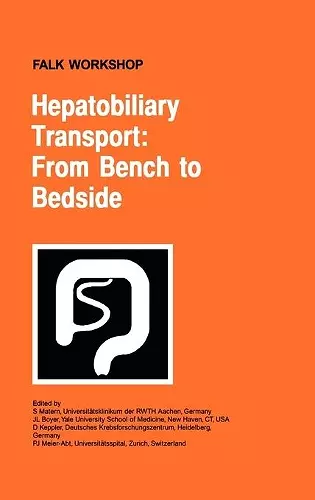Hepatobiliary Transport: From Bench to Bedside
D Keppler editor S Matern editor JL Boyer editor PJ Meier-Abt editor
Format:Hardback
Publisher:Kluwer Academic Publishers
Published:31st Dec '01
Currently unavailable, and unfortunately no date known when it will be back

There has been a tremendous amount of scientific progress in our understanding of the molecular mechanisms of transport processes in the liver within the last few years. Cloning of various members of organic anion and cation transporters has provided the necessary tools to study their regulation under physiological and pathophysiological conditions and has advanced our knowledge about bile formation. Mutations of various hepatic organic anion transporters have been identified in humans as hereditary defects leading to the heterogenous syndrome of progressive familial intrahepatic cholestasis (PFIC). Various mouse models including knockout animals have given us the opportunity to gain insight into lipid transport by the liver and the genetics of cholesterol gallstone formation. The physiology of bile duct cells and the molecular mechanisms leading to various cholangiopathies have been a main scientific focus in hepatology in recent years. Drug targeting to the liver by hepatic organic anion transporters represents an attractive way of selective delivery of pharmaceutical agents in humans. Ursodeoxycholic acid is successfully used in the treatment of patients with chronic cholestatic liver disease and major advances have been made in understanding its mode of action in liver and bile duct cells.
This book, the proceedings of the Falk Workshop held in Aachen, Germany, on 25-26 January 2001, contains chapters on all important aspects of biliary transport by well-known experts in this field. It is an essential resource for new developments in the field of biliary transport, both in basic science and clinical medicine.
ISBN: 9780792387718
Dimensions: unknown
Weight: unknown
167 pages
2002 ed.